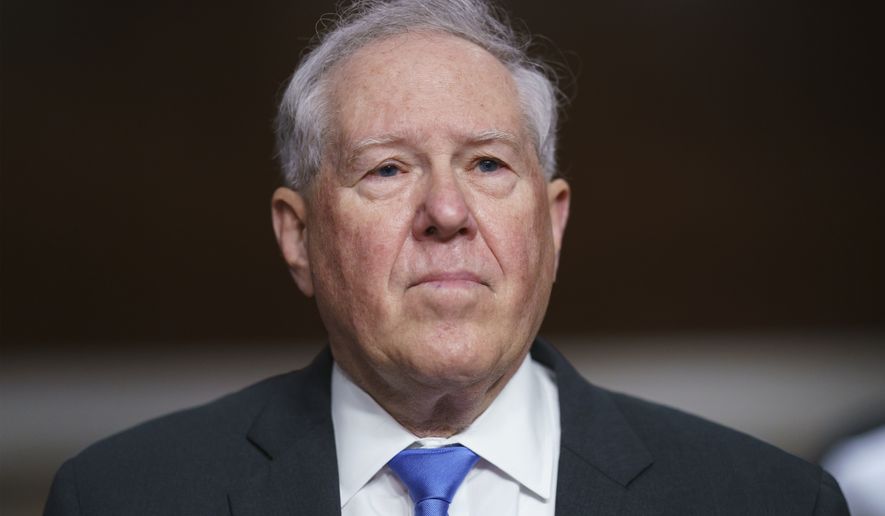New Air Force Secretary Frank Kendall used his first public speech on Monday to take a jab at Congress for its keeping aging weapons systems like the 45-year-old A-10 Thunderbolt alive, reducing the amount of money that could go to next-generation aircraft.
Mr. Kendall told a friendly audience at the Air Force Association’s Air, Space and Cyber conference that he recalled senators at his recent confirmation hearing agreeing that China’s aggressive military buildup posed a threat to U.S. security.
“In the same breath, [they] told me that under no circumstances could the — take your pick — C-130s, A-10s, KC-10s or MQ-9s in that senator’s state be retired,” Mr. Kendall said. “Nor could any base in his or her state ever be closed or lose manpower that would cause impact to the local economy.”
He acknowledged that the Air Force’s most recent budget submission to Secretary of Defense Lloyd Austin directly challenge congressional directives regarding aircraft the service would like to retire.
“The cost of these aircraft are consuming precious resources that we do need for modernization,” Mr. Kendall said. Congress “seems to have some very strong views on the importance of retaining aircraft that we no longer need and do not intimidate China.”
He offered pointed criticism of the now-deposed Afghan government and military, saying they were unable to overcome their internal divisions and unite against a common enemy, while also taking a swipe at COVID vaccine-hesitant Americans.
“Sadly, we are still contending with a disease that should have been well under control long ago,” he said. “The tools exist to defeat that disease but unfortunately those who have opted to spread or reinforce disinformation instead of uniting our country around facts and serving the greater good.”
Mr. Kendall, a former Raytheon executive who served as a senior official in the Obama administration Defense Department, said he has been “pounding the drum” for more than a decade about the threat posed to the United States by China, which is rapidly increasing its nuclear arsenal while also heavily investing in conventional weapons.
“While America is still the dominant military power on the planet, we are being more effectively challenged militarily today than at any other time in our history,” he said.
The U.S. has enjoyed unmatched military superiority against any nation in the world since the fall of the Soviet Union and for the last two decades, it has fought against insurgent forces in places like Iraq and Afghanistan.
“We are not accustomed to contending with a capable peer competitor,” Mr. Kendall. “We have lost much of our muscle memory of what it means to have a well-resourced, thoughtful and strategic opponent.”
• Mike Glenn can be reached at mglenn@washingtontimes.com.




Please read our comment policy before commenting.